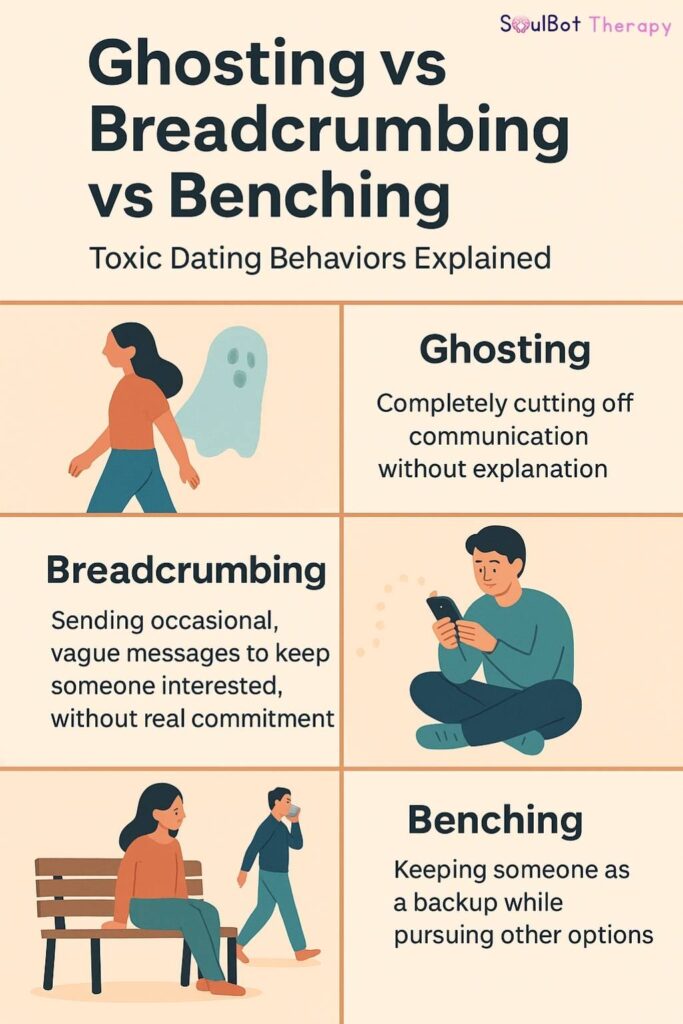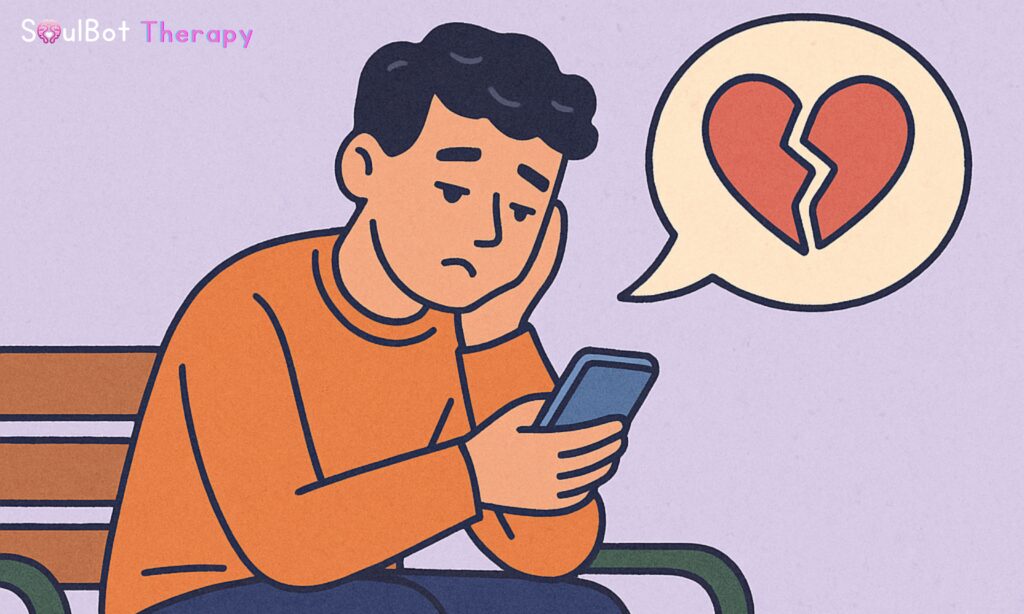You might have been benched if you’ve ever felt like someone is “keeping you around” but never fully committing. Understanding what benching means in dating can help you recognise unhealthy patterns early, protect your emotional well-being, and avoid getting stuck in confusing situationships.
In modern dating, benching means keeping someone on the sidelines like a sports player waiting to be called into the game while the person doing the benching explores other romantic options. You’re not completely ghosted, but you’re not treated as a priority either.
People bench others for many reasons: fear of commitment, insecurity, emotional unavailability, or simply enjoying the ego boost of attention without the responsibility of a real relationship.
What Does Benching Mean in Dating?
At its core, benching in dating means being kept as a backup option. The person stays in touch just enough to keep you interested but avoids clarity, consistency, or commitment.
You may feel:
- Emotionally invested, but uncertain
- Hopeful, but constantly confused
- Connected, but not chosen
Benching creates emotional ambiguity and that uncertainty is often more damaging than clear rejection.
💬 Take the Love Language Test Your platonic connections matter too. Discover how you best give and receive care even outside romantic relationships.What Are the Common Signs of Benching?
Not sure if you’re being benched? Look for these red flags:
- Inconsistent communication: They text you randomly, with long gaps in between.
- Cancelled or vague plans: They make plans but often back out at the last minute.
- Convenience texting: They only reach out when bored, drunk, or lonely.
- Mixed signals: They say things that make you feel special, but never follow up with real action.
- Emotional breadcrumbs: Just enough attention keeps you hooked, but never enough to feel secure.
📖 SoulFact: Psychology Today, notes that benching has increased with dating apps, where people keep multiple “maybes” instead of committing to one.
How Is Benching Different from Breadcrumbing or Ghosting?
While all three are toxic dating behaviours, they’re not the same:
- Ghosting: They vanish completely without explanation.
- Breadcrumbing: They send flirty messages with no intention of commitment.
- Benching: They keep you waiting as a backup option, while occasionally engaging to maintain your interest.
💡 Breadcrumbing is about attention. Benching is about control.

What Is the Emotional Impact of Benching in Relationships?
Being benched doesn’t just hurt your dating life; it affects your mental health. Common emotional effects include:
- Lower self-esteem (you feel “not good enough”).
- Increased anxiety, second-guessing every text or interaction.
- Confusion about where you stand.
- Feeling disposable or undervalued.
📖 SoulFact: A study published in the Journal of Social and Personal Relationships found that ambiguous relationship behaviors (like benching) can cause more stress than outright rejection.
How Should You Respond If You’re Being Benched?
If you suspect benching, here’s how to take your power back:
- Recognise the pattern – If their actions don’t match their words, that’s a sign.
- Set boundaries – Let them know what you will and won’t tolerate.
- Communicate directly – Ask them where they see the relationship going.
- Walk away if needed – Protect your peace. You deserve consistency, not confusion.
Can Benching Ever Lead to a Healthy Relationship?
Rarely.
Unless the person:
- Acknowledges their behaviour
- Communicates honestly
- And makes consistent changes
Benching usually signals emotional unavailability. Healthy relationships are built on mutual effort, clarity, and respect, not waiting on the sidelines.
Final Thought
Benching in dating may sound casual, but it has profound emotional consequences. If someone is keeping you as a backup while you’re giving your best, it’s time to ask yourself:
Do I want to stay on the bench, or do I want a relationship where I’m genuinely valued?
👉 Need instant clarity on dating struggles? Chat with SoulBot AI for judgment-free advice anytime.







